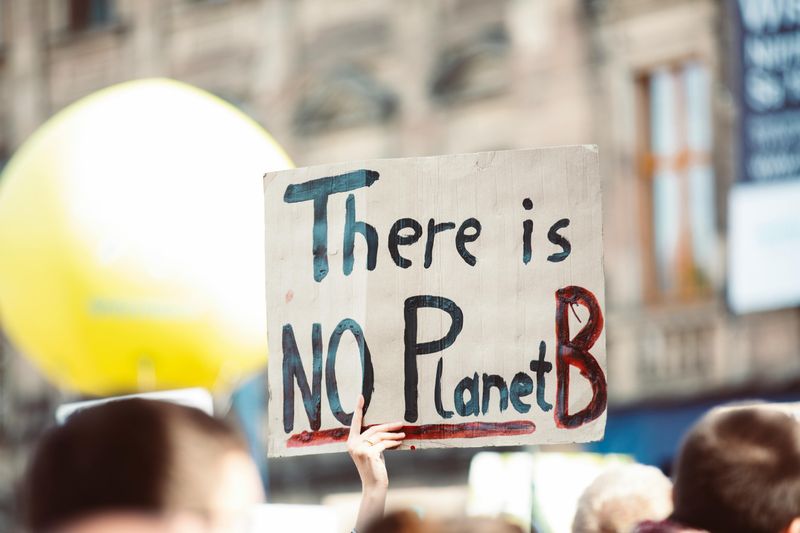10 Things Gen-Z Stresses Over That Older Generations Still Mistake for Laziness

The gap between generations isn’t just about music taste or slang – it’s about fundamentally different life experiences. Many behaviors that older adults label as ‘laziness’ in Gen-Z are actually responses to unique modern pressures. Understanding these differences isn’t just about fairness; it’s about recognizing how drastically the world has changed and the new challenges young people face today.
1. Mental Health Struggles Aren’t Weakness

Panic attacks don’t care about deadlines. When Gen-Z talks openly about anxiety or depression, they’re practicing mental health awareness, not making excuses.
Previous generations were taught to power through emotional struggles silently, creating a dangerous disconnect in understanding. Today’s young people recognize that acknowledging mental health is as important as physical health.
The courage to say ‘I’m not okay’ gets misinterpreted as fragility or unwillingness to face challenges. In reality, naming these struggles is the first step toward managing them effectively in a world that moves faster than ever before.
2. Drowning in Student Loan Debt

Being $50,000+ in debt changes everything. College graduates face monthly payments larger than their parents’ first mortgages, forcing tough choices that look like risk-aversion to older eyes.
Turning down opportunities that don’t pay enough isn’t entitlement – it’s math. When interest compounds faster than entry-level salaries grow, caution becomes necessary survival.
Many Gen-Zers feel trapped in a system that promised education as the path to success but delivered financial handcuffs instead. This crushing burden affects every decision from career choices to delaying marriages, homeownership, and children – life delays often misinterpreted as prolonged adolescence rather than economic necessity.
3. The Exhausting Gig Economy Hustle

Side hustles aren’t hobbies – they’re survival. Many Gen-Zers juggle multiple part-time jobs without benefits, job security, or clear advancement paths. The constant job-hunting never stops, even when employed.
Older generations see job-hopping as flakiness rather than recognizing a fundamentally changed employment landscape. The traditional career ladder has transformed into a precarious rope bridge.
When a young person seems reluctant to commit to a low-paying position with no future, it’s not laziness – it’s strategic thinking in an economy that offers them little loyalty. The emotional labor of constant reinvention and uncertainty creates burnout that’s invisible to outside observers.
4. Housing Costs Beyond Reach

When rent eats up 50% of your income, “just save more” doesn’t work. Gen-Z faces housing costs that have skyrocketed while wages have stagnated, creating mathematical impossibilities rather than budgeting challenges.
Living with parents past age 25 isn’t a failure to launch – it’s often the only financially responsible option. The dream of homeownership feels increasingly like fantasy for many young adults.
When older generations purchased homes, they typically cost 2-3 times annual income. Today, that multiplier is often 8-12 times in many cities. This fundamental shift makes traditional milestones of adulthood genuinely unattainable rather than simply delayed by poor planning or work ethic.
5. Eco-Anxiety About an Uncertain Future

Growing up with climate crisis headlines creates a different relationship with consumption. Gen-Z’s environmental concerns aren’t performative – they’re existential.
Choosing public transport over car ownership or questioning whether to have children given environmental forecasts isn’t laziness or melodrama. It’s responding to scientific reality that will shape their future more dramatically than previous generations.
The psychological weight of inheriting environmental problems while being told it’s their responsibility to fix them creates genuine anxiety. When young people express climate concerns, they’re not avoiding responsibility – they’re actually taking it more seriously than many of their critics.
6. Paralysis from Perfection Pressure

Hesitation isn’t always procrastination. In a world where your earliest mistakes can be permanently documented online, the fear of failure becomes magnified beyond what previous generations experienced.
College admissions, internships, and entry-level positions now demand perfection that would qualify for management roles in previous decades. What looks like overthinking to older observers is actually a rational response to higher stakes.
Gen-Z grew up watching small missteps become career-ending social media scandals. This creates a high-pressure environment where taking action feels increasingly risky. The resulting caution gets misread as lack of initiative rather than the protective adaptation it actually represents.
7. Digital Overwhelm and Notification Fatigue

The modern brain processes more information before breakfast than our grandparents did in a week. Gen-Z navigates a constant barrage of notifications, updates, and news that creates genuine cognitive overload.
What looks like phone addiction to older observers is often workplace expectation – many employers now demand 24/7 availability through digital channels. The line between work and personal time has disappeared.
Decision fatigue from constant micro-choices depletes mental energy in ways previous generations never experienced. When young people seem disengaged or need digital breaks, it’s often a necessary reset for mental processing rather than avoidance behavior. Their brains are running background tasks that drain cognitive resources invisibly.
8. Seeking Meaning Beyond Just Paychecks

The idea that young people should “just take any job” misses the point entirely. Gen-Z witnessed their parents sacrifice happiness for stability, often ending up with neither after economic downturns and layoffs.
Seeking work aligned with values isn’t entitlement – it’s learning from previous generations’ experiences. Studies consistently show that purpose-driven work leads to better performance and less burnout.
Many young people would rather work harder for less money in roles that contribute positively to society. This preference for meaning isn’t laziness but rather a different priority system. When companies offer nothing beyond compensation, they shouldn’t be surprised when young talent seeks workplaces that provide both livelihood and purpose.
9. Healthcare System Anxiety

Avoiding the doctor isn’t irresponsibility when a single emergency room visit can lead to bankruptcy. Gen-Z grew up watching GoFundMe become America’s unofficial health insurance plan.
Many young adults lack employer healthcare benefits entirely due to gig work and contract positions. Even those with insurance face deductibles and copays that consume entire paychecks.
The stress of navigating an incomprehensible healthcare system creates legitimate anxiety that older generations with established doctors and better coverage don’t experience. What looks like procrastination about health appointments is often fear of financial ruin rather than carelessness about wellbeing.
10. Social Media’s Double-Edged Sword

Imagine growing up with your entire social life, career networking, and personal brand development happening on platforms designed to maximize your insecurities. That’s Gen-Z’s reality.
Social media isn’t just entertainment – it’s become mandatory for many career paths and social connections. The exhaustion from maintaining online presence while comparing yourself to curated highlights is genuinely depleting.
When young people take digital detoxes, they’re not being antisocial – they’re practicing necessary self-preservation. The constant performance pressure of social media creates a unique form of fatigue that previous generations simply never had to manage while developing their adult identities.

Comments
Loading…